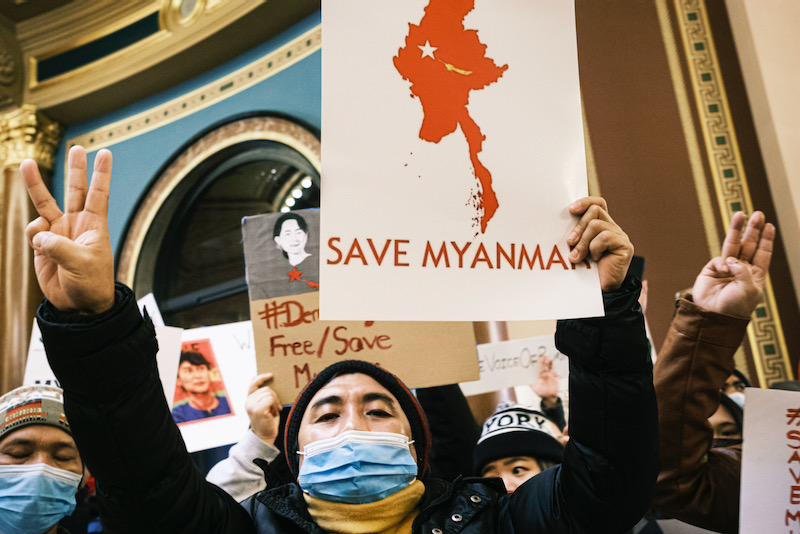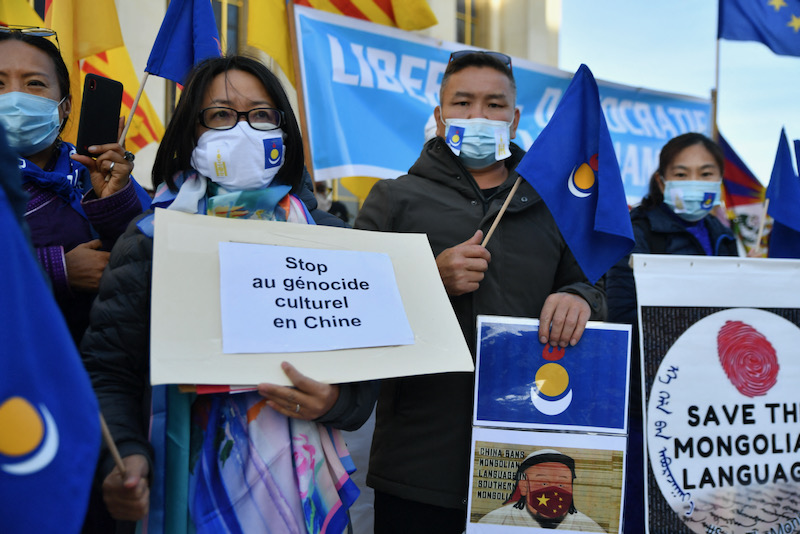While virtue-signalling is usually cost-free, to do something actually virtuous most often requires some kind of sacrifice.
In 1833, Britain spent 40 per cent of its national budget, buying freedom for all slaves in the Empire. A couple of years ago, in response to a freedom of information request, the Treasury confirmed that Britain borrowed such a large sum of money for the Slavery Abolition Act that it wasn't paid off until 2015. It means that living British citizens helped pay for the ending of the slave trade with their taxes.
The economic cost of the evangelical-led campaign for abolition was truly eye-watering, yet from an acknowledgement of our complicity in the evil of slavery, Britain acted to do the right thing. Ultimately that’s what history has remembered: the doing of the right thing.
Human history is littered with examples man’s inhumanity to man and woman. Slavery still exists, and it still needs to be fought culturally, politically and economically. So, while we have breath in our lungs, the good fight goes on.
Like slavery, the evil of genocide requires a similar commitment to vigilance and voice in every generation. And like slavery, this evil represents a sin against a whole people. However, whereas slavery involves systemic oppression and exploitation, genocide (as defined by the United Nations) involves “…acts committed with the intent to destroy, in whole or in part, a national, ethnic, racial or religious group…”. Which means that genocide often involves slavery in its operation.
Some would doubtless argue that the human condition makes genocide an inevitability – something we should just accept as part and parcel of our fallenness. The problem is that, having been fashioned in the image of God, we are all entitled to the life he gives us, whether born or unborn. So, we all have a responsibility to value each other’s essential dignity, regardless of any political or economic cost.
Soon, the House of Commons will have the opportunity to vote upon Lord Alton’s genocide amendment to the UK Trade Bill. After losing narrowly by 11 votes on 19 January, it returns after achieving a staggering majority of 171 in the House of Lords. If it passes in the Commons, it would allow British judges to rule whether a country was committing genocide, and would bind the UK Government to terminate all trade agreements with the offending state.
Against a backdrop of the exposes of vast human rights abuses of Uighurs by the Chinese Communist Party, it is worth noting who has lent the campaign their support: the Board of Deputies of British Jews during the Holocaust Memorial Day commemorations, support from across the Muslim community in the UK, and a range of Christian bodies. It is a formidable coalition.
On the surface, the main objections in the last Commons debate revolved around two key issues: whether the courts be trusted to adjudicate apolitically, and whether the mechanism would encourage a deluge of judicial activism on a range of other human rights issues. Beneath the surface, in the context of our post-Brexit bilateral trade agreement, the issue is the bottom line – how it would impact our economy.
The constitutional concerns seem to have been addressed in the revised amendment, giving courts only the power to confirm whether genocide is taking place with parliament and the government still ultimately able to decide on action. The activism concerns seem to have been addressed by assurances of a very high bar being set to prove the especially heinous act of genocide. What remains is the broader question as to whether the cost to the UK economy would be too great.
On this final point, we return to the example of the cost of Britain taking a stand against slavery. While there is no comparison economically – the abolition of slavery vastly outweighs the potential cost of trade lost lost trade to “genocidal” regimes – the moral principle of doing the right thing as a country on the world stage is the same.
How long can we remain a “bystander state” to this especially grievous act abuse of humanity? Like most other nations, we have convention obligations to prevent genocide. The recently launched 2021 Open Doors World Watch List of the persecution of Christian globally – which lists the 50 worst countries on earth to live as Christian – shows a rapidly deteriorating global situation in which 309 million Christian now face very high or extreme levels of persecution and discrimination for their faith.
The report concluded by urging our government to “take every opportunity presented by post-Brexit trade negotiations with countries on the World Watch List to champion human rights, in particular Freedom of Religion or Belief”. Will our elected representatives rise to this challenge?
Will they count the cost of not acting? Will we stand up and stand out as a nation that doesn’t do business with murderers? Humanity and history await an answer.
Dr David Landrum is Director of Advocacy and Public Affairs, Open Doors UK & Ireland.



 Loading ...
Loading ...
What do you think?
You can post as a subscriber user ...
User comments (0)